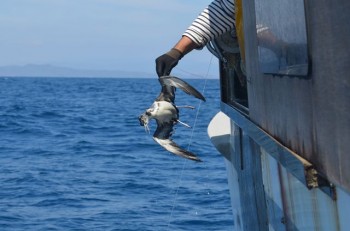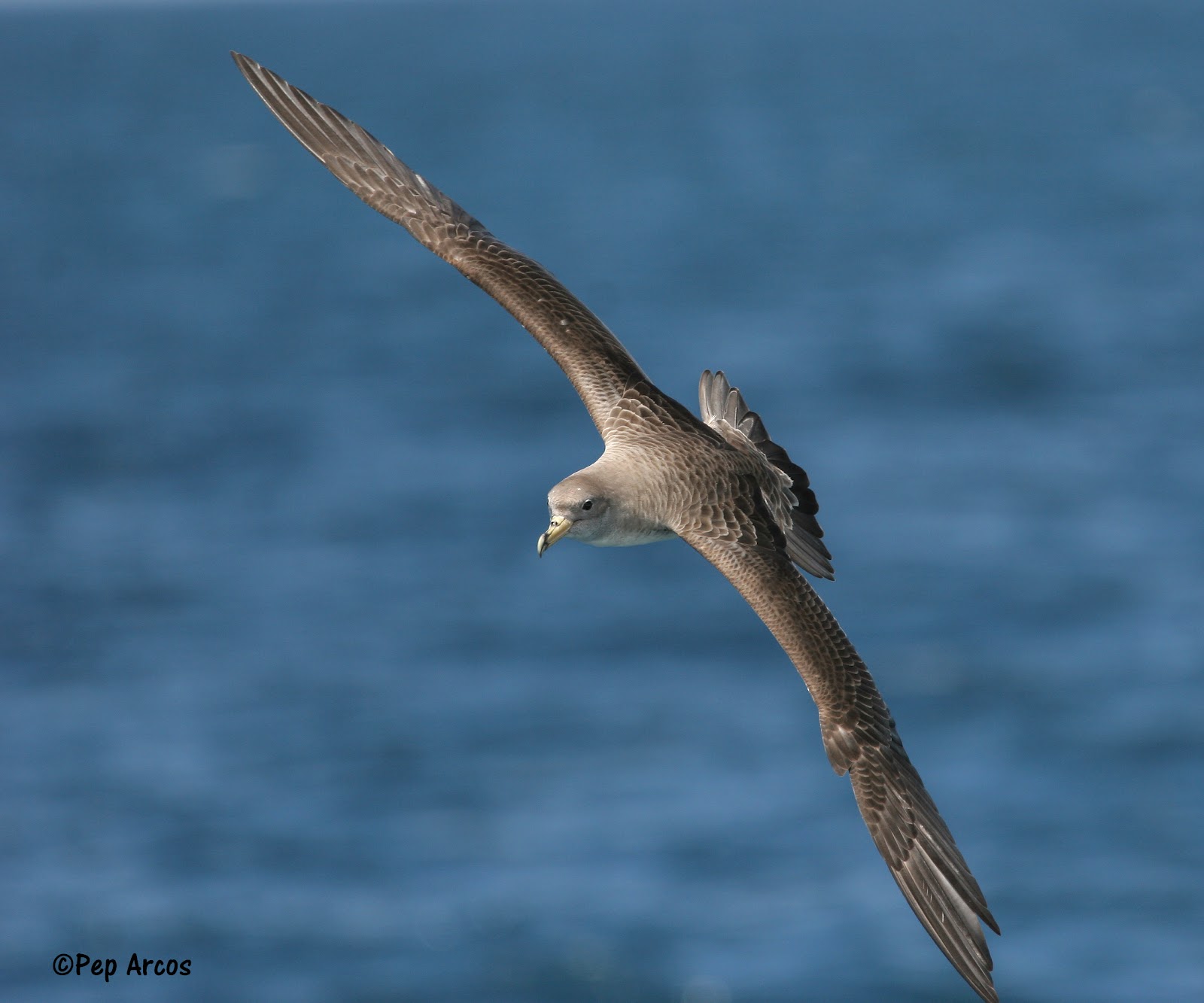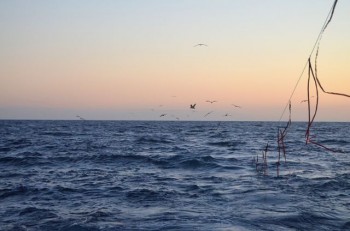The Departament Biologia Animal (Vertebrats) of Spain’s Universitat de Barcelona has recently published a manual in Spanish to help reduce seabird bycatch when longline fishing entitled “Manual de buenas practicas en la pesca de palangre de fondo” (click here). This best-practice manual (click here to download the PDF) has been produced by the university’s Jacob González Solís and PhD student Vero Cortés.

A Yelkouan Shearwater caught on a longline, photograph by Vero Cortés
In the Mediterranean, the problem of longline bycatch particularly affects the ACAP-listed and Critically Endangered Balearic Shearwater Puffinus mauretanicus which only breeds on Spanish islands, as well the other two shearwaters that occur in the Mediterranean: Yelkouan P. yelkouan and Scopoli’s Calonectris diomedea.

Balearic Shearwater

Yelkouan Shearwaters

Scopoli's Shearwater
Photographs by Pep Arcos
A press release in English “Non-hooked birds: how to avoid seabird bycatch in the Mediterranean?” is also available. It states that “[n]ight setting; bird scaring lines; weighted branchlines that sink rapidly; fish offal and bait covered on board so it doesn’t attract seabirds to the boats; deck lights kept at the minimum level, and discards not thrown back into the sea” are some of the best strategies to avoid seabird bycatch in longline fisheries in the Mediterranean (click here).

A bird-scaring line, photograph by Vero Cortés
Two relevant videos in Spanish have also been produced by the university team:
Anzuelos sin aves: el sur del Levante español and Anzuelos sin pájaros.
The manual is a product of a scientific project undertaken at the University of Barcelona, with the collaboration of SEO/BirdLife.
Click here for a related ACAP Latest News item.
With thanks to Vero Cortés for information and photographs.
John Cooper, ACAP Information Officer, 15 March 2015

 English
English  Français
Français  Español
Español